The holiday season means a time for not only giving gifts but giving...
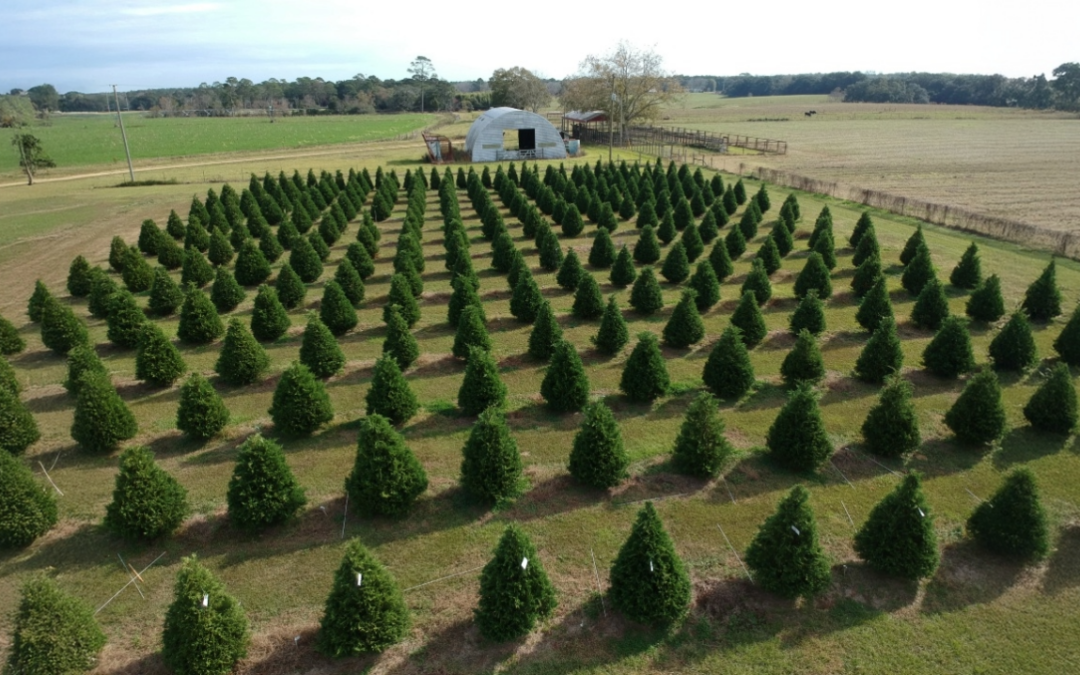

The holiday season means a time for not only giving gifts but giving...
The common parasitic horn fly (Haemotabia irritans) can drain up to a pint of cow blood every week, and they are fast becoming resistant to insecticide. Researchers at the Alabama Agricultural Experiment Station are working to develop smarter solutions for Alabama’s...
Partnership with CERES TAG to enhance data collection The Department of Animal Sciences in the Auburn University College of Agriculture recently announced a partnership with CERES TAG, a leading global animal health intelligence platform to improve livestock...
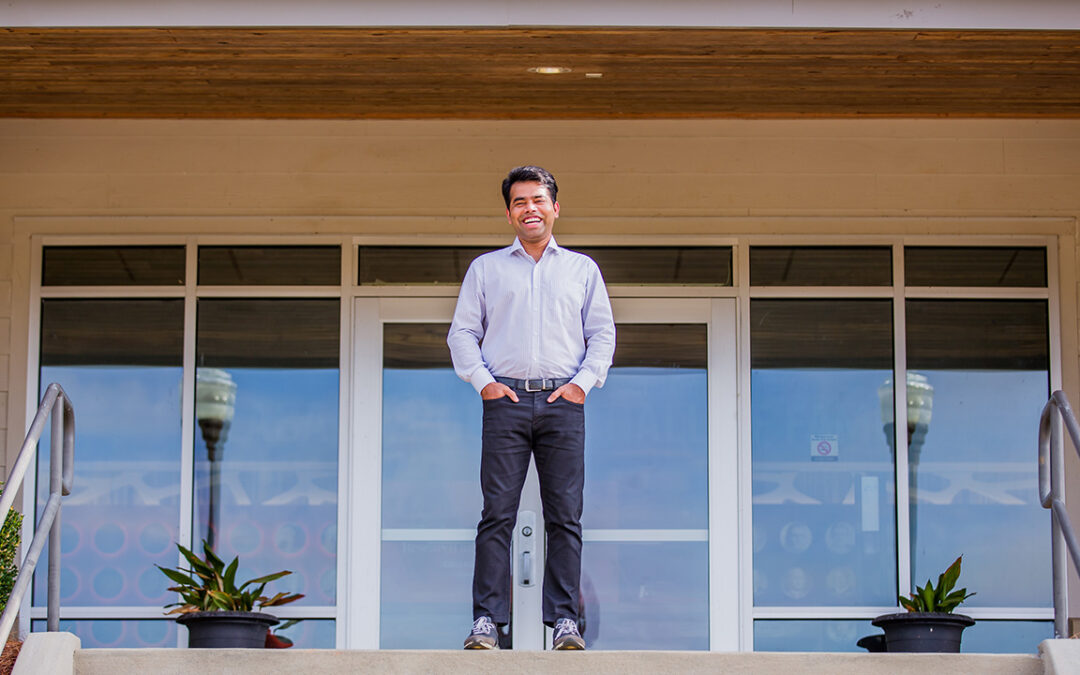
When Dr. Rana Waqar Tabish came to Auburn to begin working toward his PhD, he already had one doctorate under his belt….

By Graham Brooks New and special beer releases are a point of pride at New Realm Brewing–Auburn and that will continue with the unveiling of Pine Hill Pumpkin Amber as...
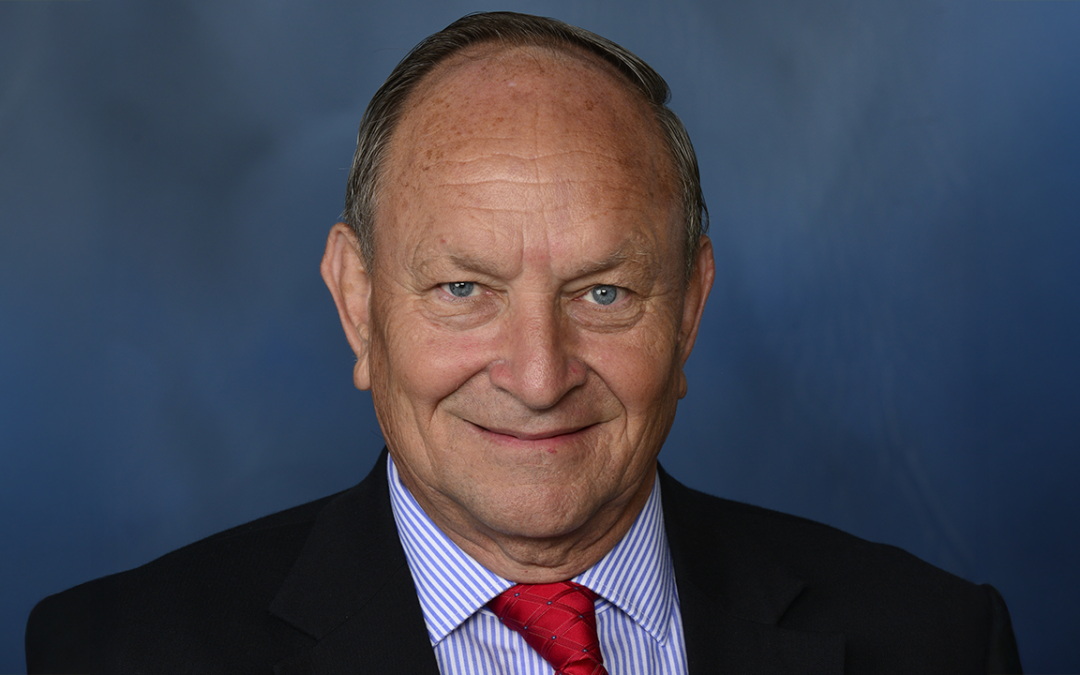
After more than 40 years of teaching, scholarship, leadership development and service, Auburn University Associate Professor Don Mulvaney announced his professional...
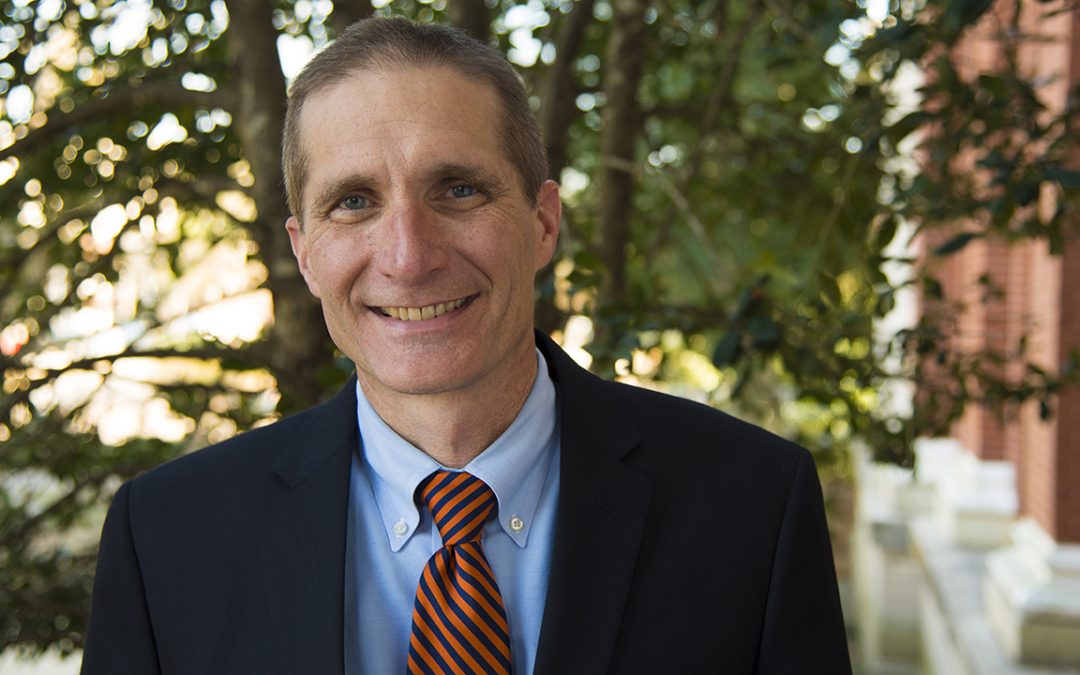
Paul Patterson received the Southern Agricultural Economics Association Lifetime Achievement Award at its annual meeting in early February. Patterson is dean of the Auburn University College of Agriculture and director of the Alabama Agricultural Experiment Station....
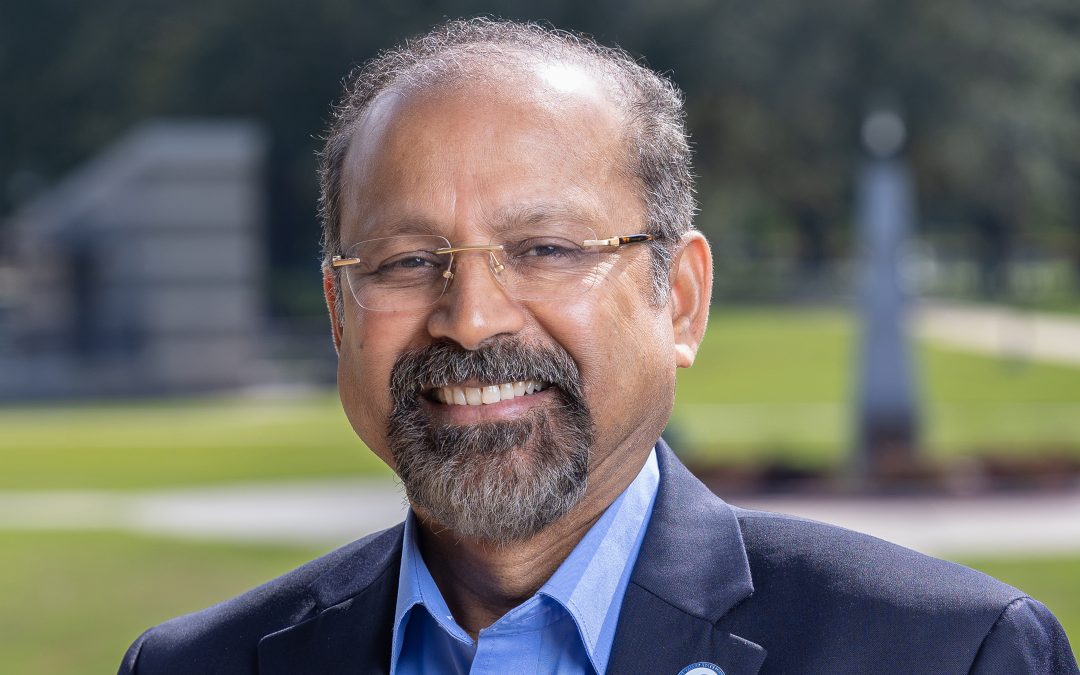
Auburn University has named Govind Kannan as its head for the Department of Poultry Science and director of the Charles C. Miller Poultry Research and Education Center, effective June 1. Kannan currently serves as Fort Valley State University’s vice president for...

Auburn University has awarded Daniel Wells, associate professor of horticulture, with its Elbert A. and Barbara L. Botts Endowed Professorship, effective this month. The appointment is for 33 months, January 2024-September 2026. Wells has served at Auburn since 2014,...

The National Oceanic and Atmospheric Administration awarded Auburn University’s Di Tian a two-year, $313,420 grant to develop improved long-term, high-resolution precipitation data over the United States. Tian is an associate professor in Auburn’s Department of Crop,...
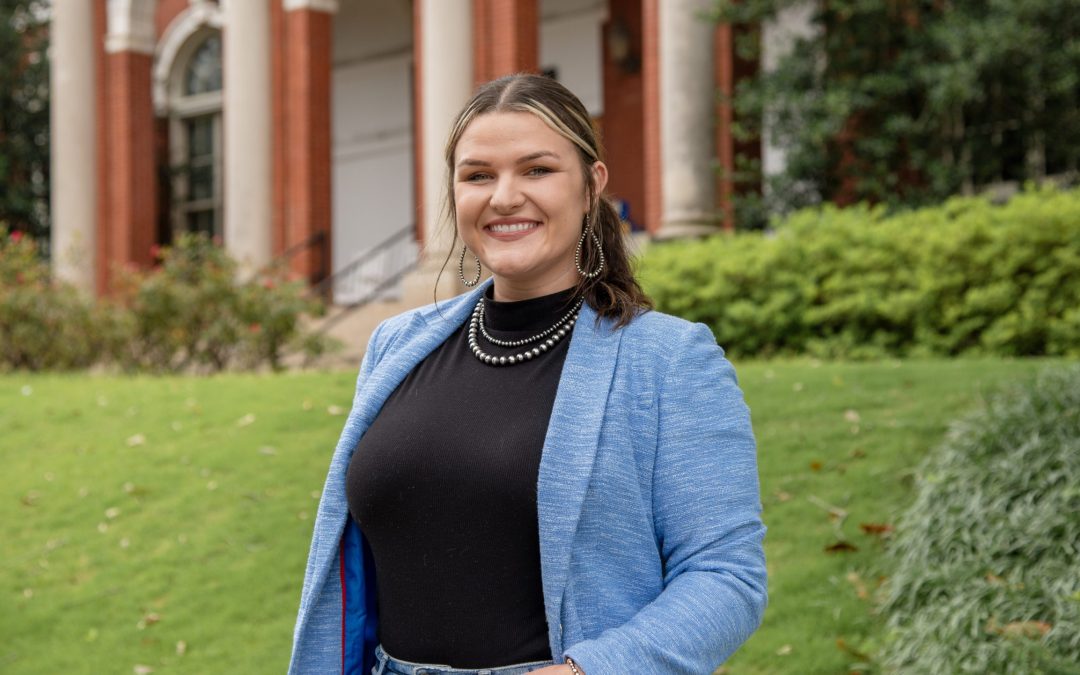
New Professor of Practice for Youth Livestock Programs started June 2023 Sarah-Jane French is someone who believes everything happens for a reason. A new faculty member in the Department of Animal Science within the Auburn University College of Agriculture, she...
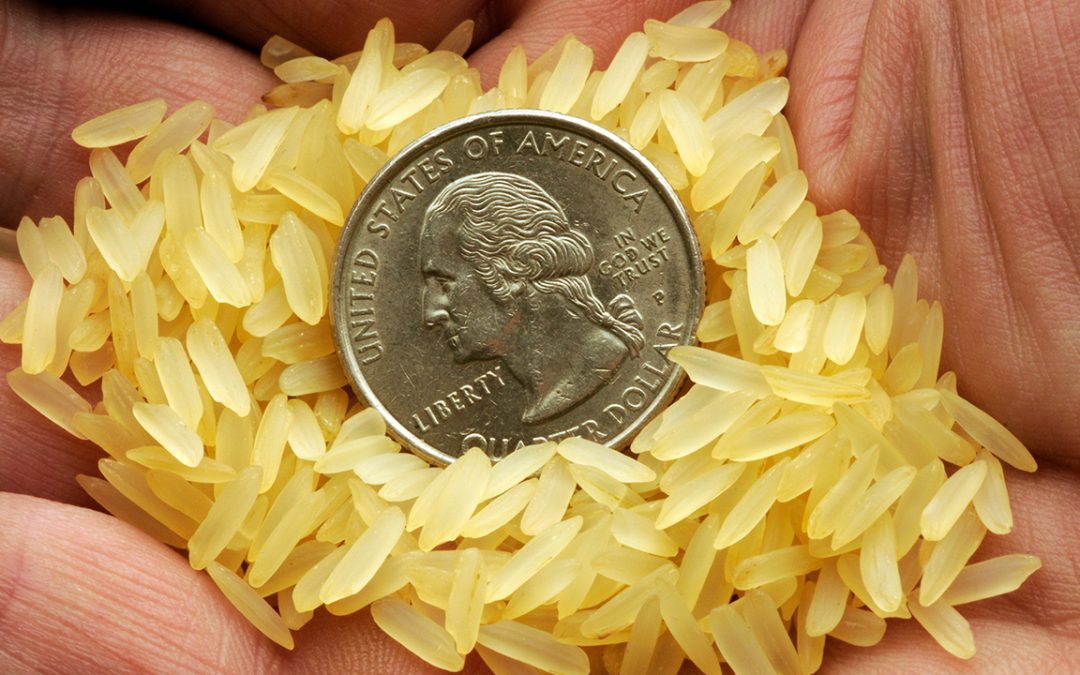
"The Handbook of Microfinance, Financial Inclusion and Development," edited by Valentina M. Hartarska, Alumni Professor in the Department of Agricultural Economics & Rural Sociology, details the conceptual frameworks for financial inclusion, the importance of how...
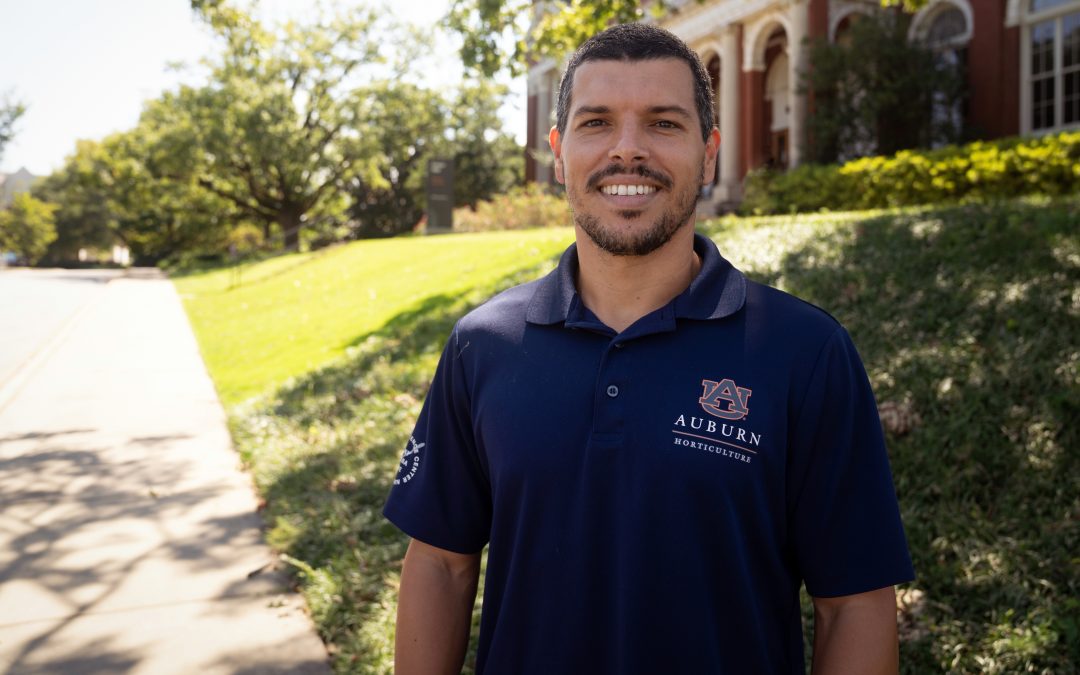
By Rachel Damiani Assistant Professor Andre da Silva is conducting cutting-edge research on ways to grow hops in Alabama within Auburn University’s Department of Horticulture in collaboration with faculty, industry leaders and students. As an Alabama Extension...
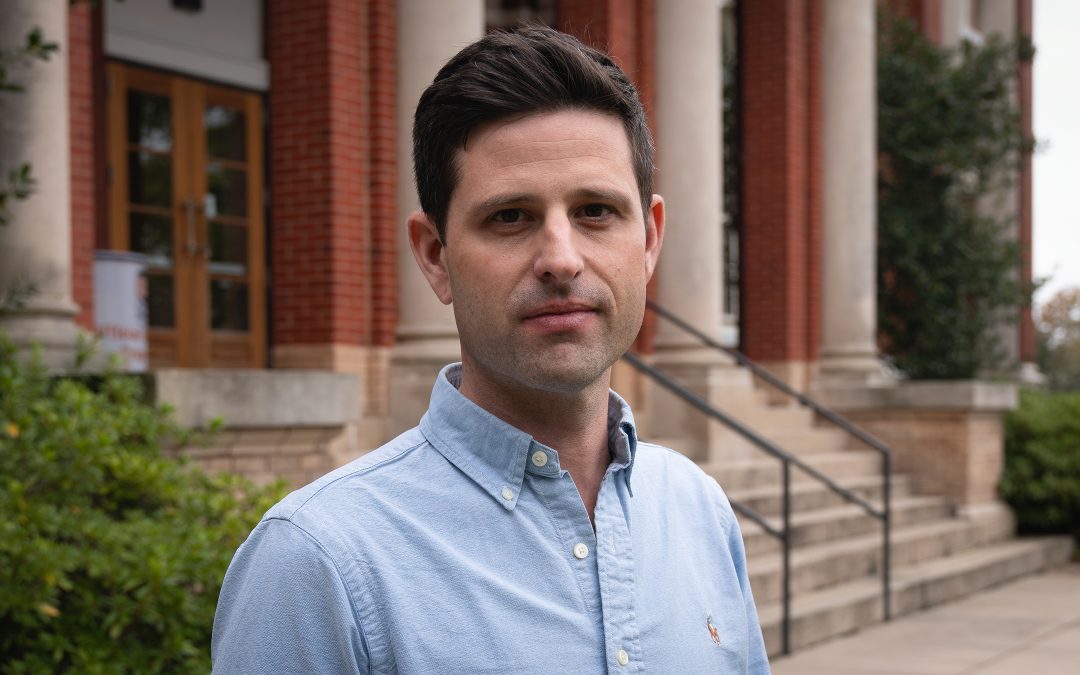
“Human” episode airing Saturday to feature Penick’s research on urban ants An episode of Planet Earth III airing in the U.S. this Saturday, Dec. 16, was made possible with the help of Assistant Professor Clint Penick in the Department of Entomology and Plant...
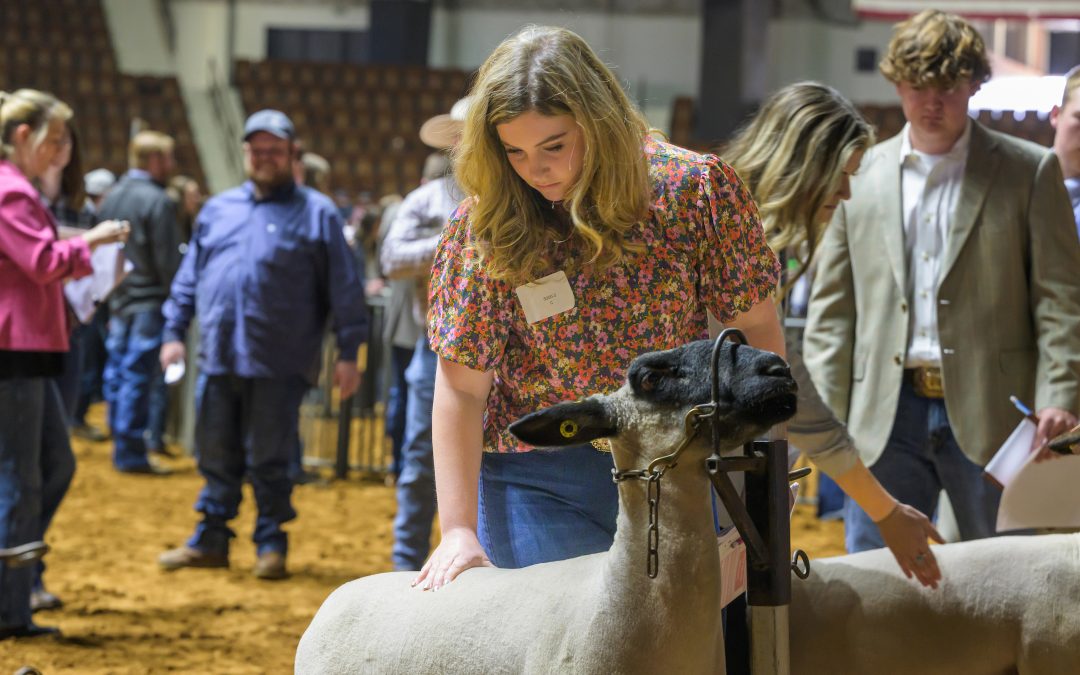
By Mike Jernigan Imagine, if you will, the mental stress and intensity of a formal student debate, but with cattle, pigs, sheep and goats both as the audience and the topic of discussion. Sound like a chapter from George Orwell’s Animal Farm? It’s not. Instead,...
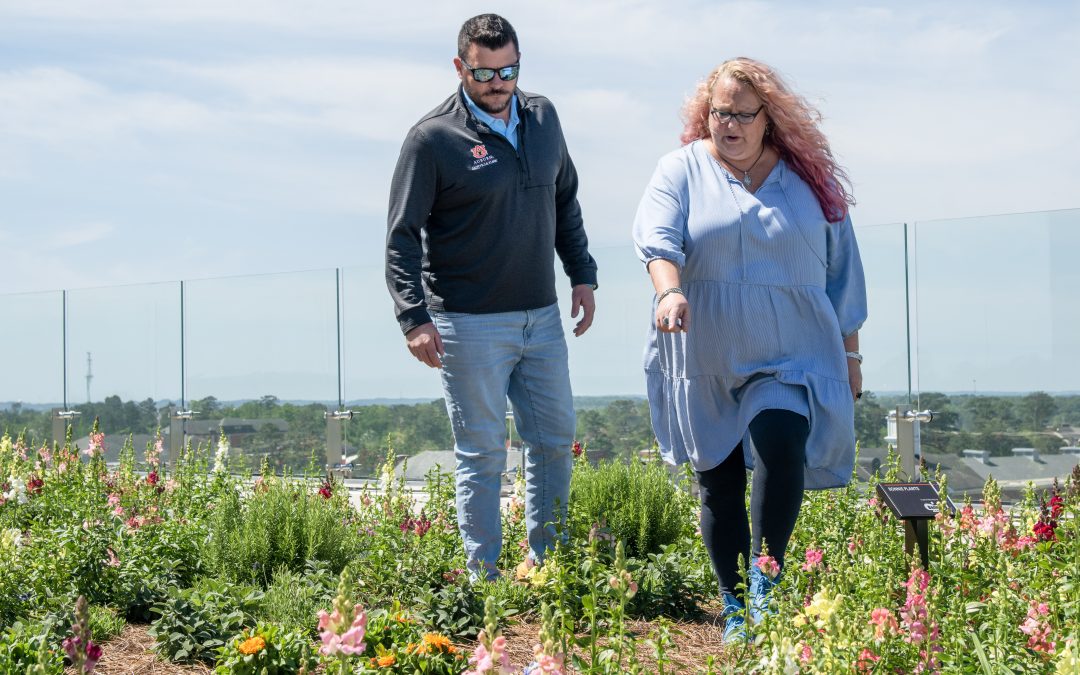
By Taylor Edwards and Kristen Bowman What do you get when you combine horticulture and artistry? Take a stroll through the 4,400-square-foot garden atop the Tony and Libba Rane Culinary Science Center, and you have your answer. Two particularly special minds are...
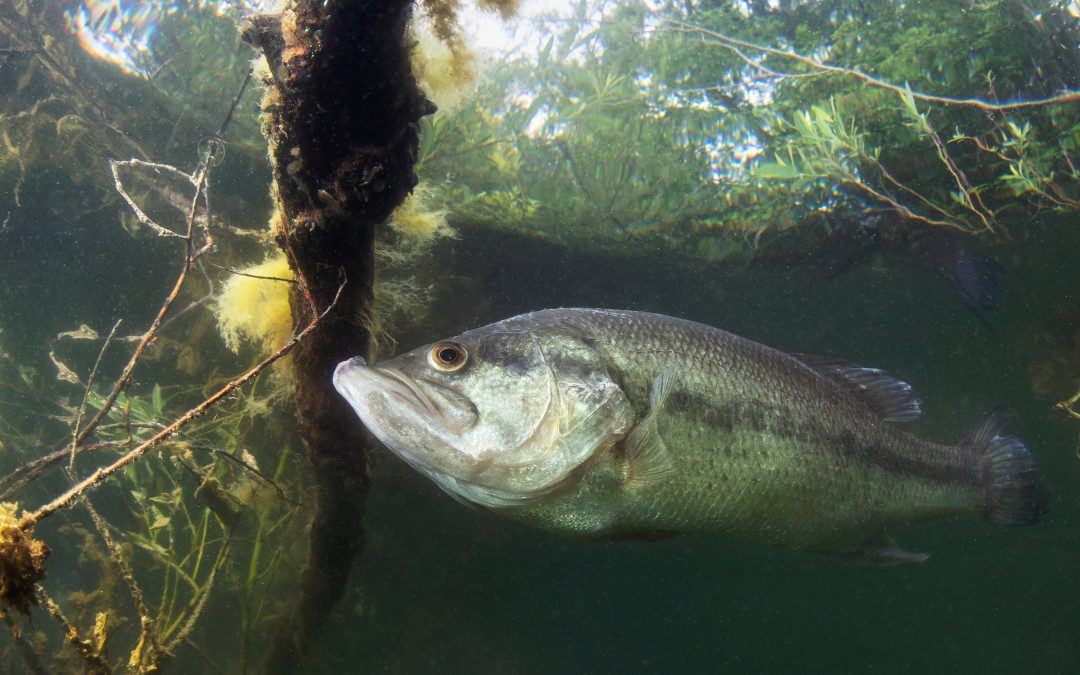
Research made possible by $650,000 USDA-NIFA grant By Adam Cletzer In the $1.5 billion U. S. aquaculture industry, largemouth bass production is a small fry. The fish’s unusually high mortality rate across all stages of production makes it a challenge for farmers to...
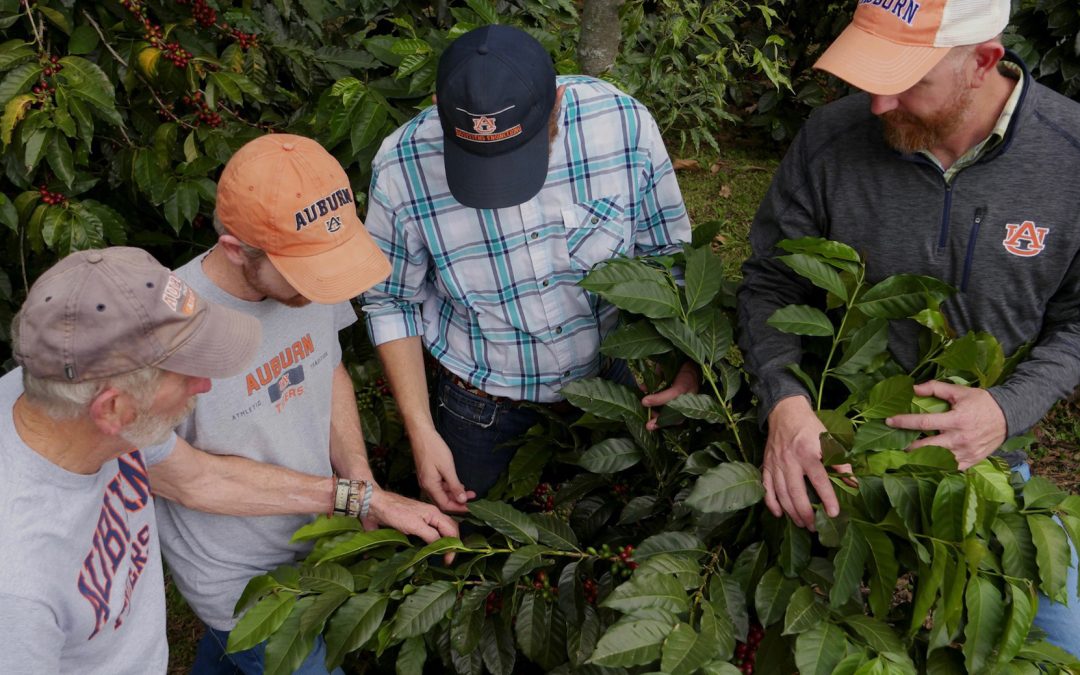
By Mike Jernigan If die-hard Auburn fans truly bleed orange and blue, then few families’ blood likely features more of the Tiger colors than the Brodbeck clan, whose immediate family features seven Auburn graduates. But a blood test would also show another liquid...
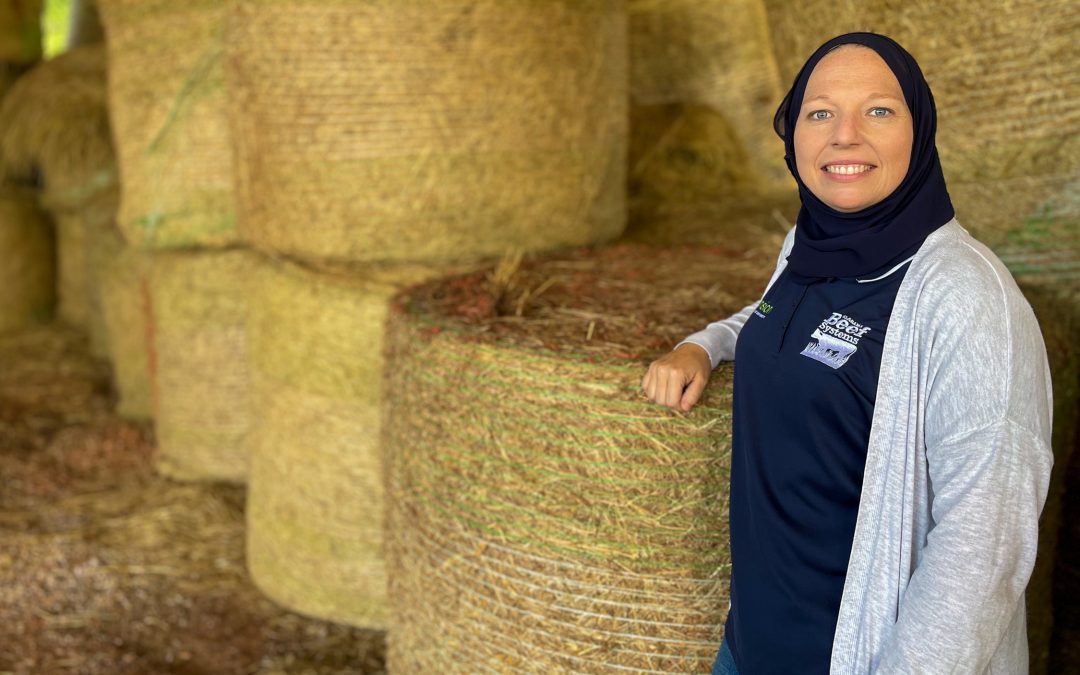
The Road Back: Leanne Dillard shares her agriculture story By Justin Miller A desire to work in agriculture is something that many people have from an early age. But the story of Leanne Dillard is quite different. Early in her life, she wanted nothing to do with...
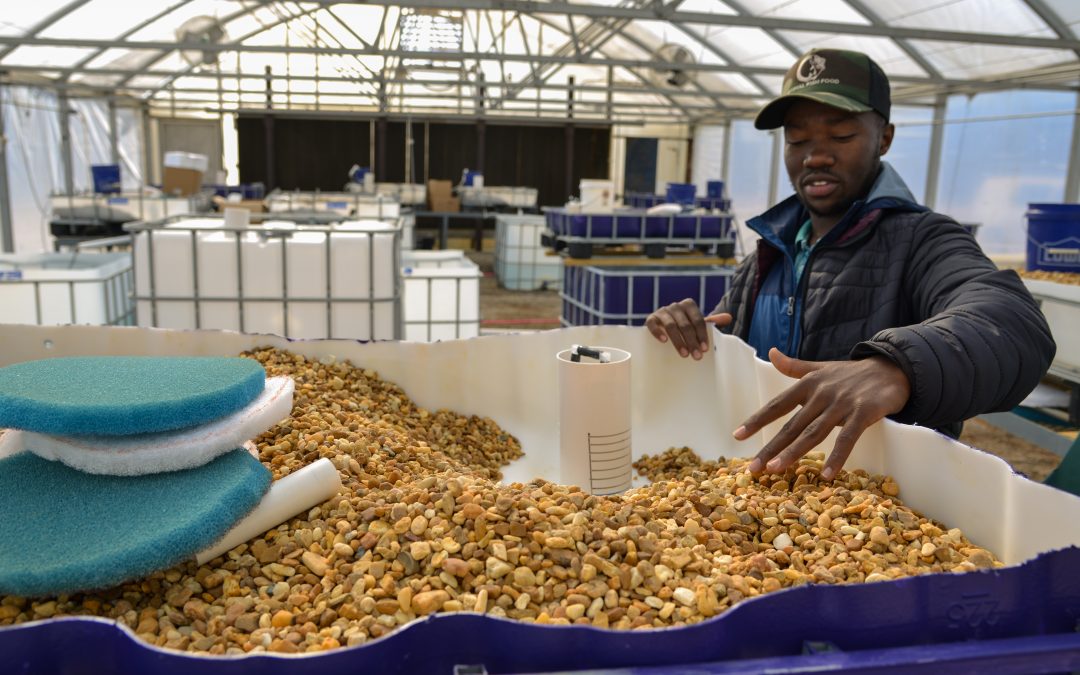
It’s become a bit of a tradition. Each summer, some of the best and brightest students at EARTH University in Costa Rica travel to Auburn to study and conduct research with the Auburn Aquaponics Project at the E.W. Shell Fisheries Center. In 2022, those students were...
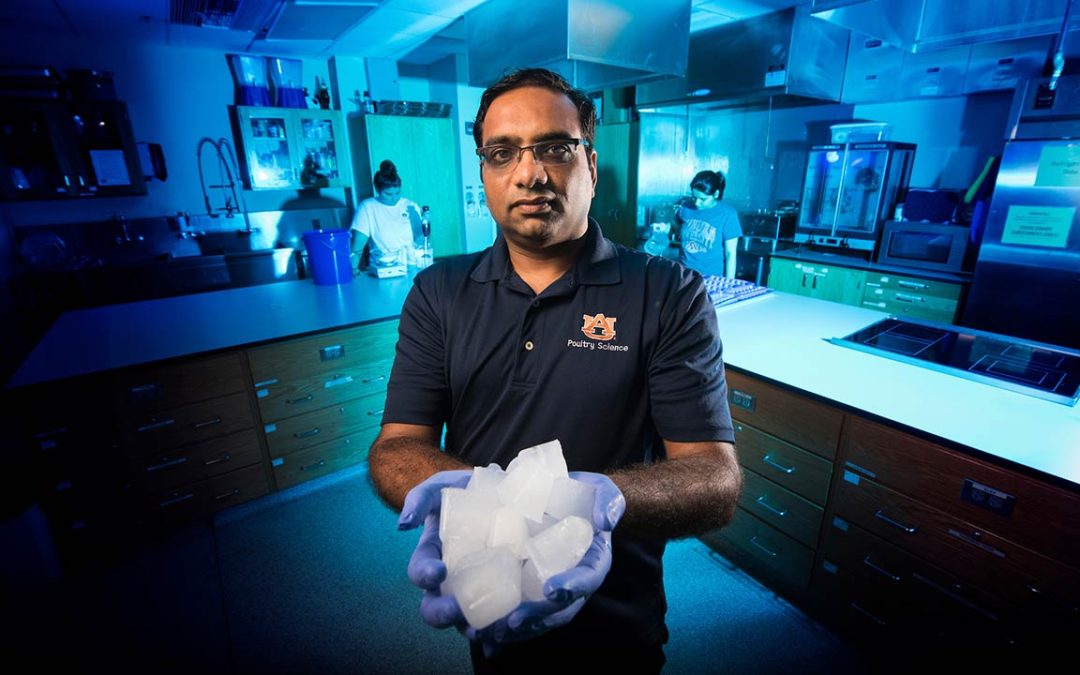
This week’s segment of the Everything Auburn podcast delves into the research of one of Auburn's rockstar professor experts, Amit Morey, and his work in improving the quality and safety of poultry products. Morey is an associate professor of poultry science in...

A nearly half-a-million-dollar grant will allow Auburn University professors and Alabama Agricultural Experiment Station researchers to help blueberry growers in states like Alabama where growing the fruit has its challenges. Funded by a $497,827 grant from the U.S....
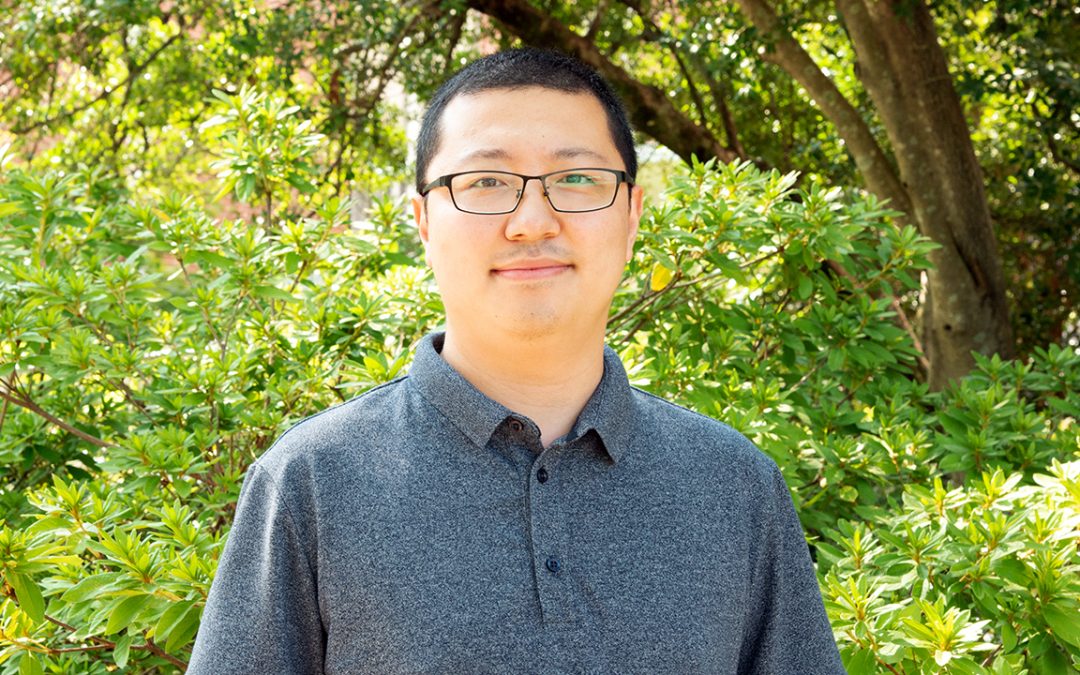
The U.S. Department of Agriculture (USDA) National Institute of Food and Agriculture (NIFA) has announced an investment of nearly $22 million in agricultural economics research that includes agricultural markets, international trade, farm labor, consumer behavior and...
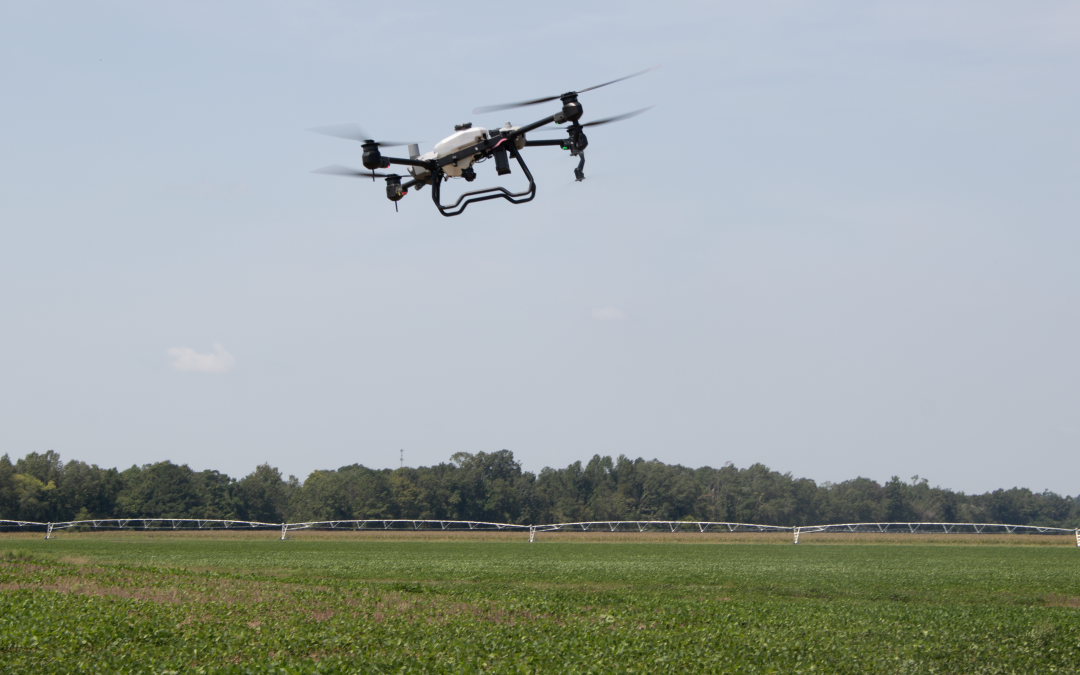
While drones were initially used in agriculture primarily for collecting crop and field-condition data, Auburn University researcher Steve Li is leading an effort to explore how the small, remotely piloted aircraft can be used to apply pesticides and other farm...
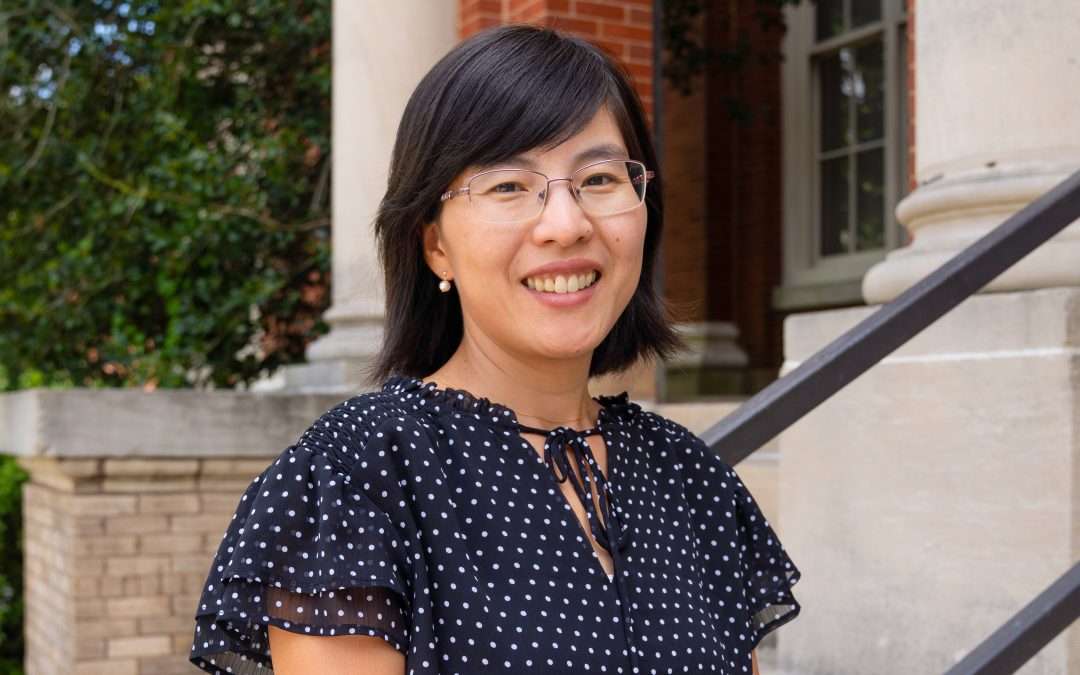
Blueberry breeding and research at Auburn University received new support in the form of a $5.2 million award from the USDA Specialty Crops Research Initiative Program. Sushan Ru, an assistant professor and blueberry breeder in the Department of Horticulture, was part...

With an impressive resume in agricultural business and economics, Omolola Bankole, graduate student in the Agricultural Economics and Rural Sociology Department, was chosen to attend the 12th annual Women in Agribusiness Summit as a student scholar sponsored by John...
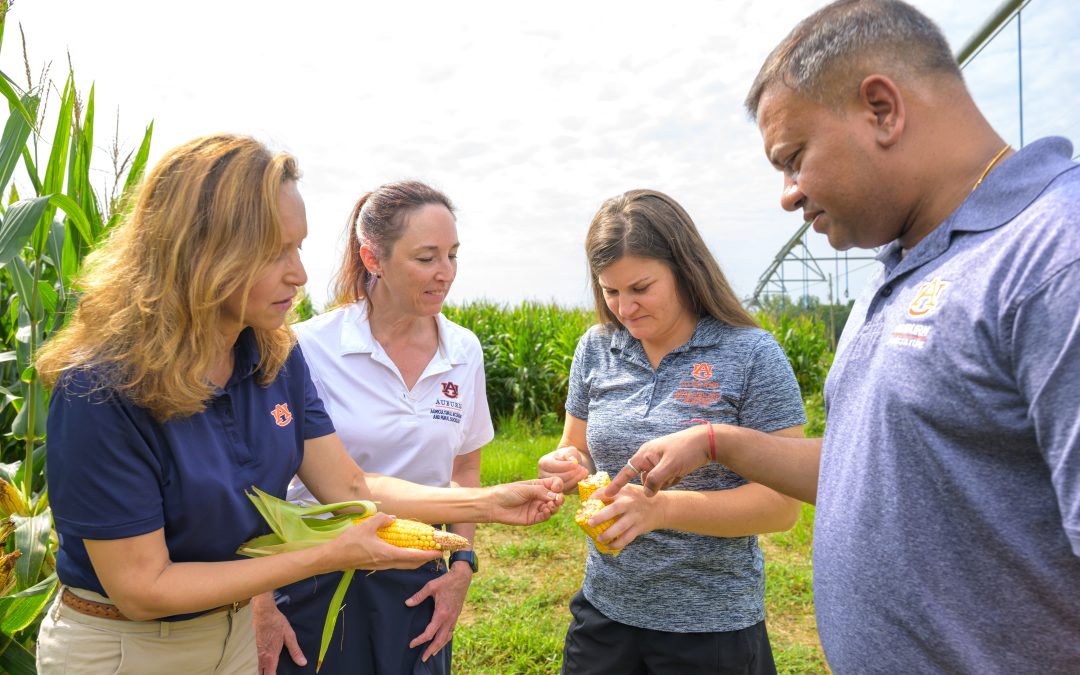
How challenging is it to farm sustainably? The answer is complex. While technological and scientific advancements have improved the resiliency of modern farms, there are challenges that today’s farmers face in adopting conservation practices. Enter the Alabama...

Paul Patterson received the Southern Agricultural Economics Association Lifetime Achievement Award at its annual meeting in early February. Patterson is dean of the Auburn University College of Agriculture and director of the Alabama Agricultural Experiment Station....

Auburn University has named Govind Kannan as its head for the Department of Poultry Science and director of the Charles C. Miller Poultry Research and Education Center, effective June 1. Kannan currently serves as Fort Valley State University’s vice president for...

Auburn University has awarded Daniel Wells, associate professor of horticulture, with its Elbert A. and Barbara L. Botts Endowed Professorship, effective this month. The appointment is for 33 months, January 2024-September 2026. Wells has served at Auburn since 2014,...

The National Oceanic and Atmospheric Administration awarded Auburn University’s Di Tian a two-year, $313,420 grant to develop improved long-term, high-resolution precipitation data over the United States. Tian is an associate professor in Auburn’s Department of Crop,...

New Professor of Practice for Youth Livestock Programs started June 2023 Sarah-Jane French is someone who believes everything happens for a reason. A new faculty member in the Department of Animal Science within the Auburn University College of Agriculture, she...

"The Handbook of Microfinance, Financial Inclusion and Development," edited by Valentina M. Hartarska, Alumni Professor in the Department of Agricultural Economics & Rural Sociology, details the conceptual frameworks for financial inclusion, the importance of how...

By Rachel Damiani Assistant Professor Andre da Silva is conducting cutting-edge research on ways to grow hops in Alabama within Auburn University’s Department of Horticulture in collaboration with faculty, industry leaders and students. As an Alabama Extension...

“Human” episode airing Saturday to feature Penick’s research on urban ants An episode of Planet Earth III airing in the U.S. this Saturday, Dec. 16, was made possible with the help of Assistant Professor Clint Penick in the Department of Entomology and Plant...

By Mike Jernigan Imagine, if you will, the mental stress and intensity of a formal student debate, but with cattle, pigs, sheep and goats both as the audience and the topic of discussion. Sound like a chapter from George Orwell’s Animal Farm? It’s not. Instead,...

By Taylor Edwards and Kristen Bowman What do you get when you combine horticulture and artistry? Take a stroll through the 4,400-square-foot garden atop the Tony and Libba Rane Culinary Science Center, and you have your answer. Two particularly special minds are...

Research made possible by $650,000 USDA-NIFA grant By Adam Cletzer In the $1.5 billion U. S. aquaculture industry, largemouth bass production is a small fry. The fish’s unusually high mortality rate across all stages of production makes it a challenge for farmers to...

By Mike Jernigan If die-hard Auburn fans truly bleed orange and blue, then few families’ blood likely features more of the Tiger colors than the Brodbeck clan, whose immediate family features seven Auburn graduates. But a blood test would also show another liquid...

The Road Back: Leanne Dillard shares her agriculture story By Justin Miller A desire to work in agriculture is something that many people have from an early age. But the story of Leanne Dillard is quite different. Early in her life, she wanted nothing to do with...

It’s become a bit of a tradition. Each summer, some of the best and brightest students at EARTH University in Costa Rica travel to Auburn to study and conduct research with the Auburn Aquaponics Project at the E.W. Shell Fisheries Center. In 2022, those students were...

This week’s segment of the Everything Auburn podcast delves into the research of one of Auburn's rockstar professor experts, Amit Morey, and his work in improving the quality and safety of poultry products. Morey is an associate professor of poultry science in...

A nearly half-a-million-dollar grant will allow Auburn University professors and Alabama Agricultural Experiment Station researchers to help blueberry growers in states like Alabama where growing the fruit has its challenges. Funded by a $497,827 grant from the U.S....

The U.S. Department of Agriculture (USDA) National Institute of Food and Agriculture (NIFA) has announced an investment of nearly $22 million in agricultural economics research that includes agricultural markets, international trade, farm labor, consumer behavior and...

While drones were initially used in agriculture primarily for collecting crop and field-condition data, Auburn University researcher Steve Li is leading an effort to explore how the small, remotely piloted aircraft can be used to apply pesticides and other farm...

Blueberry breeding and research at Auburn University received new support in the form of a $5.2 million award from the USDA Specialty Crops Research Initiative Program. Sushan Ru, an assistant professor and blueberry breeder in the Department of Horticulture, was part...

With an impressive resume in agricultural business and economics, Omolola Bankole, graduate student in the Agricultural Economics and Rural Sociology Department, was chosen to attend the 12th annual Women in Agribusiness Summit as a student scholar sponsored by John...

How challenging is it to farm sustainably? The answer is complex. While technological and scientific advancements have improved the resiliency of modern farms, there are challenges that today’s farmers face in adopting conservation practices. Enter the Alabama...